Camel ruminant mammal of the family Camelidae. The family consists of three genera, the true camels of Asia (genus Camelus ); the wild guanaco and the domesticated alpaca and llama , all of South America (genus Lama ); and the vicuña , also of South America (genus Vicugna ). The hooves on members of the family are much reduced, growing only on the upper surface of the outside toes of the feet.
The two species of true camel are the single-humped Arabian camel, or dromedary, Camelus dromedarius, a domesticated animal used in Arabia and North Africa, and the two-humped Bactrian camel ( C. bactrianus ) of central Asia. Some wild Bactrian camels exist in Turkistan and Mongolia. The humps are storage places for fat. Camels range in color from dirty white to dark brown and have long necks, small ears, tough-skinned lips, and powerful teeth, some of which are sharply pointed. The camel uses the mouth in fighting. Adaptations to desert life include broad, flat, thick-soled two-toed feet that do not sink into the sand; the ability to go without drinking for several days—or longer if juicy plants are available; and valvular nostrils lined with hairs for protection against flying sand. Horny pads help to protect the chest, knees, and thigh joints against injury from the hard surfaces on which the camel sleeps.
Strong camels usually carry from 500 to 600 lb (230 to 270 kg) and cover about 30 mi (48 km) a day. Some Bactrian camels can transport 1,000 lb (450 kg). A light, fleet breed of dromedary is used for riding and not for bearing heavy loads. The name dromedary was formerly applied to any swift riding camel.
Here some of Camel Coloring Pages. Welcome here, featuring some pictures to print and color.
The two species of true camel are the single-humped Arabian camel, or dromedary, Camelus dromedarius, a domesticated animal used in Arabia and North Africa, and the two-humped Bactrian camel ( C. bactrianus ) of central Asia. Some wild Bactrian camels exist in Turkistan and Mongolia. The humps are storage places for fat. Camels range in color from dirty white to dark brown and have long necks, small ears, tough-skinned lips, and powerful teeth, some of which are sharply pointed. The camel uses the mouth in fighting. Adaptations to desert life include broad, flat, thick-soled two-toed feet that do not sink into the sand; the ability to go without drinking for several days—or longer if juicy plants are available; and valvular nostrils lined with hairs for protection against flying sand. Horny pads help to protect the chest, knees, and thigh joints against injury from the hard surfaces on which the camel sleeps.
Strong camels usually carry from 500 to 600 lb (230 to 270 kg) and cover about 30 mi (48 km) a day. Some Bactrian camels can transport 1,000 lb (450 kg). A light, fleet breed of dromedary is used for riding and not for bearing heavy loads. The name dromedary was formerly applied to any swift riding camel.
Here some of Camel Coloring Pages. Welcome here, featuring some pictures to print and color.
Camel coloring pages
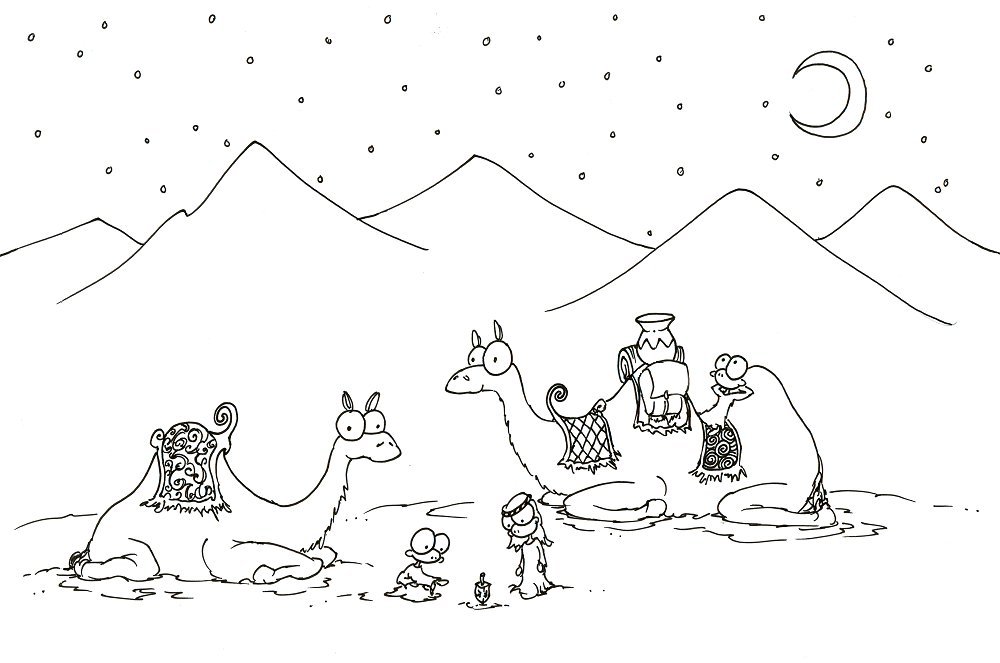

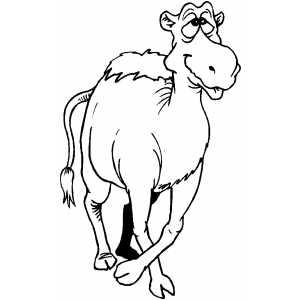







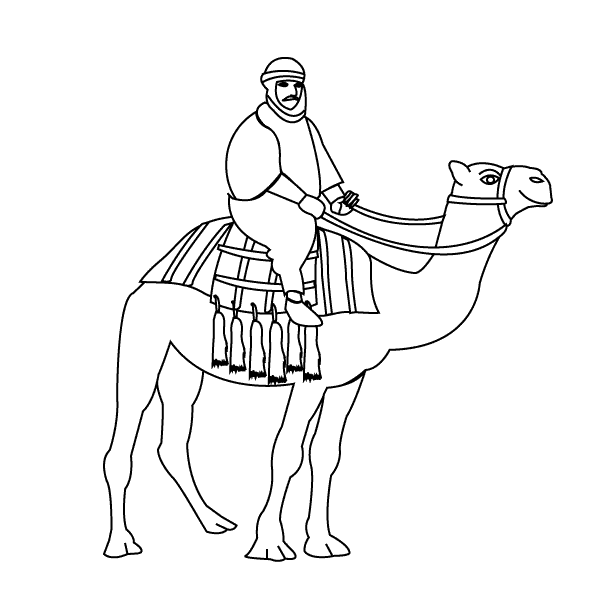

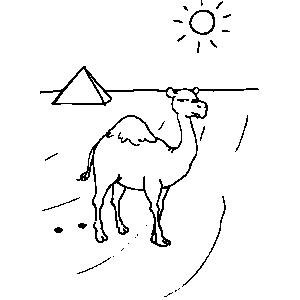







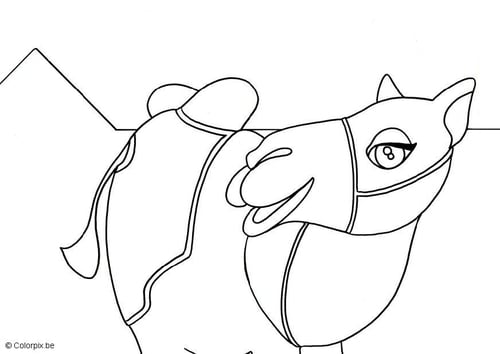









Camel coloring pages







0 comments:
Post a Comment